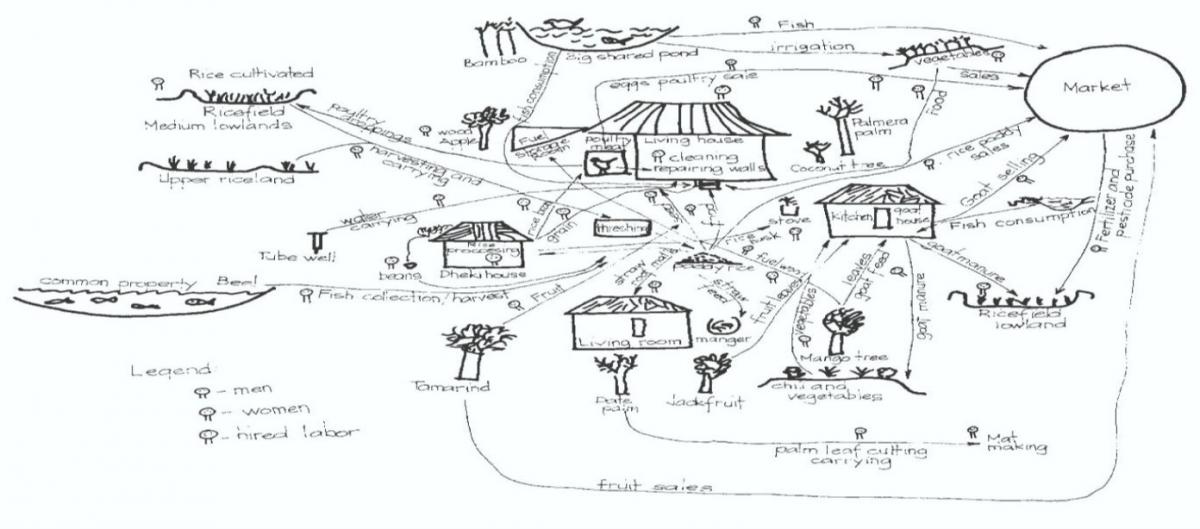-
About
- Our Work
- Get Involved
- Stay Updated
Agrindus: Erasing Assumptions and Lifting Potential

Back in 2015
As an undergraduate, my practical involvement in agriculture has taught me that agricultural practice goes beyond the four walls of the classroom.
Combining both the practical experience and theoretical learning is essential to conceive practical ways to support agriculture. Let me introduce you to my initiative, called AgrindusNetwork, started in 2015. It is a paradigm shift from the usual- journal publications, articles, books and so on, for the smallholder farmers and youth who are into agriculture and those who desire to venture into agriculture.
The initiative involves a team of innovative young professionals in the field of agriculture working with smallholder farmers in the South West (Ondo and Ekiti States). Activities undertaken include assessment of current and prospective capacities of farmers; discussion of trends in agriculture including the benefits of adopting best practices to boost their production and enhance their livelihood and lots of ground to be cover in the rural sphere and ultimately, in the agricultural sector
The Agrindus Principles
AgrindusNetwork is all about describing agriculture within the rings of rural farmers/communities and youth involvement in agriculture and agribusinesses. Agriculture has grown from being a mere practice to a business oriented approach. In his statement in 2010, Vaarst says; a focus on agriculture is generally believed to be a panacea for sustainable development of any nation. Stressing on this fact, farmers in my own description are the backbone of any nation with no exception of Nigeria farmers. Just imagine a farmer cultivating 3-4 different crops (yam, cassava, maize and leafy vegetables) on one hectare of land every planting session and feeding his family member and selling the remnants to earn income as a supplement of his effort. This really depicts the potential of farmers in using agriculture as a development tool.
The second principle is deeply rooted in Dr AkinwumiAdesina statement that “saga of increased youth unemployment is particularly traceable to the neglect of agriculture and the mono – cultural dependence on oil". To solve this issue, a solid attention is given to youth to take up the baton of agriculture from our old age people but much is said and little is implemented with less than 5% of the youth venturing into agriculture and agribusinesses. Although, several reasons influencing this include migration of youth (this accounts for 60%), disincentive to agriculture, orientation of youth to agriculture as dirty, non-profitable ventures etc.
Continuity of the work started
AgrindusNetwork is determined to continue transforming the rural agricultural sector from just mere old age engaging in agriculture to what is called an exposure of young people to agriculture as a lucrative business. The network flaunts the potential of these old farmer’s practices to prove what they can do without the improve varieties of seeds, latest technology and improved breeds of livestock . In additon, it highlights what exploit they will perform if they have sufficient funding and the needed infrastructural facilities such as improved varieties, new intervention approaches that are grass-rooted, good road network, good market, new technology and good extension system.
To aid our work and make the voice of farmers count, we have our faces on Facebook, Twitter, Instagram and WordPress.
Photo Credit: FAO
About the author
Related Posts
Comments
No comments made yet. Be the first to submit a commentBy accepting you will be accessing a service provided by a third-party external to https://archive.ypard.net/
Get in touch
Email: [email protected]
YPARD Global Coordination UnitHosted by AGRIDEA and the Czech University of Life Sciences Prague
Lausanne, Switzerland and Prague, Czech Republic - Our Work

